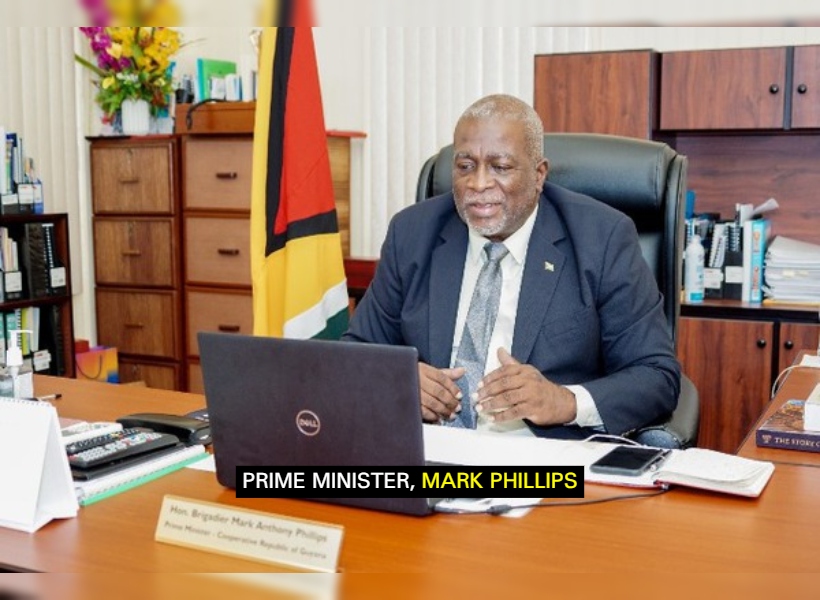Prime Minister, Brigadier (Retired) Mark Phillips, is encouraging households to get involved in Guyana’s sustainable development by adopting energy practices to save money and reduce energy wastage while protecting the environment.
While the Government of Guyana says it remains committed to providing affordable, stable, and reliable energy to benefit all, energy efficiency and conservation are also essential in realising a low carbon economy.
Reducing energy consumption through behavioural changes and energy-conscious decisions can lead to less energy wastage and curb the growth of the country’s fuel import bill, particularly during times of high oil prices.
Energy efficiency and conservation will cut fuel costs and result in cost savings for consumers. Moreover, lower levels of energy consumption can assist in decreasing the reliance on imported fossil fuels and lead to environmental benefits in the form of the reduction of greenhouse gases emissions and air pollution.
Therefore, the Prime Minister is calling on citizens to join the drive for sustainable energy development by incorporating the following energy efficiency and conservation practices, where applicable:
1. Turn off lights when they are not in use. For optimal performance, turn lights off when they will not be in use for more than 15 minutes.
2. Turn off appliances when they are not in use. Appliances that are left on draw power even when not in use. A switch outlet power strip can help turn off multiple items at once, and light socket switches can be installed to turn off appliances with the flip of a switch.
3. Unplug battery chargers when not in use or when batteries are fully charged. Many chargers draw power continuously, even when the device is unplugged.
Switch to LED lights. LED lights consume about 85% less energy than incandescent bulbs, expel less heat, and last longer.
4. Focus lights where they are most needed. Instead of brightly lighting an entire room, use general low lighting throughout rooms and focused lights for reading, working etc.
5. Look for ways to make use of natural lighting. Use light coloured loose-weave curtains to allow daylight in the room while preserving privacy.
6. Use photocells for outdoor lighting. This will automatically turn the outdoor lights on during the night and help with the common mistake of forgetting to turn off the lights during the day.
7. Decide what you want before opening the refrigerator door. Each time the refrigerator door is opened, more energy is required to restore the temperature.
8. Ensure pots are properly covered while cooking. Also, use the appropriate burner for pots and pans, e.g. small pots to small burners. Small pots on large burners result in wasted energy.
9. Ensure all clothes are ironed on one day. The more frequently the iron is plugged in, the more energy is used.
10. Look for the Energy Star Label or Energy Guide when buying appliances to make sure you buy an energy-efficient unit.
11. Replace old refrigerators and air conditioning units with energy-efficient inverter-type refrigerators and air conditioning units.
12. Fix leaking pipes and turn off the tap while brushing your teeth to reduce the energy used to pump water to homes.
13. Adjust air conditioner temperatures between 230C and 250C for a cool but not cold environment. Air conditioners set at low temperatures use more energy.
14. Combine errands into one trip or plan activities to reduce the number of trips. Several short trips, each one taken from a cold start, can use twice as much fuel as one trip covering the same distance when the engine is warm.
Avoid traffic jams and do not tailgate as this increases the need for breaking and energy consumption.
15. Ensure tyres are properly inflated and aligned to improve milage.
Do not force your car to speed on lower gear. Drive at the highest appropriate gear.
16. Use a car windshield sunshade when parking outdoors or park in cool areas to reduce the heat in your vehicle.
17. Avoid unnecessary idling. Turn off the engine if you anticipate a wait for more than two (2) minutes.
Citizens are asked to visit www.gea.gov.gy for more information on other ways to conserve energy.













